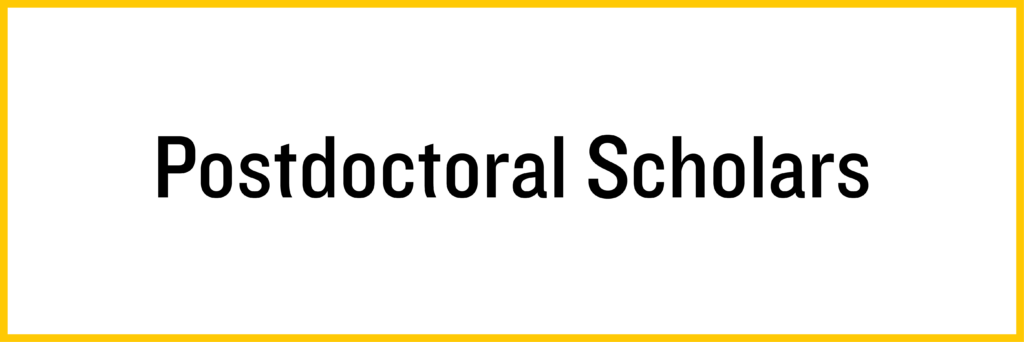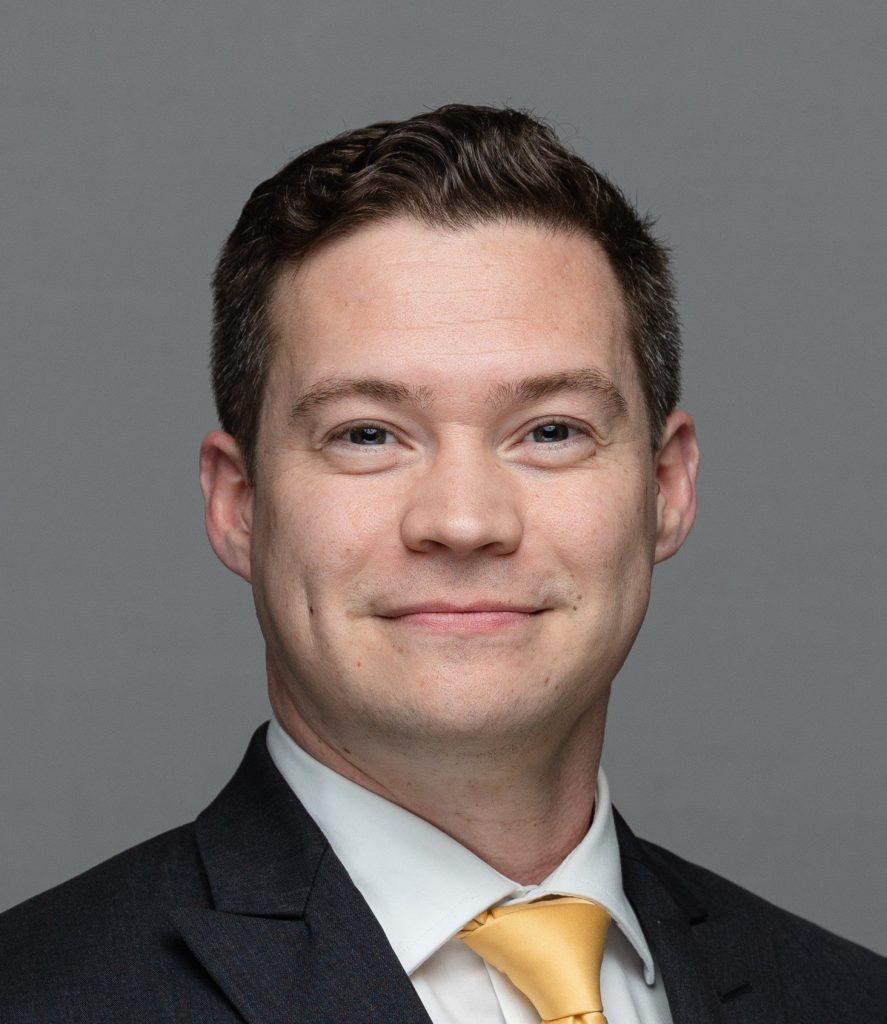Postdoctoral Scholars
Home »
Postdoctoral scholars, often referred to as postdocs, play a vital role in the UCF research community. They come to UCF for a limited time to engage in advanced research and gain scholarly training, preparing for future academic positions.
The College of Graduate Studies plays a central role in this support system. The college keeps postdocs informed about university services and policies, fosters their professional development, and promotes networking opportunities both on and off-campus. Additionally, the college administers the Preeminent Postdoctoral Program (P3) and oversees the recruitment of postdoctoral scholars.
In April 2023, the commitment to postdoctoral support was further strengthened with the hiring of an Associate Director for Postdoctoral Affairs. This led to the establishment of the Office of Postdoctoral Affairs in May/June 2023.
To ensure the continued support and well-being of our postdoctoral community, the UCF Postdoctoral Association Group was founded in 2020. This group is dedicated to creating a representative body that collaborates with UCF administrators, working together to develop a robust and supportive ecosystem for postdoctoral researchers at UCF.

Eric Switzer – Physics
Starting over can be a daunting prospect, but that’s exactly what Eric Switzer did when he chose to pursue a degree in physics after building a career for himself in human resources and healthcare leadership development for over a decade. The Oregon native always enjoyed physics and developed a love for the subject after being sent to space camp as a child and seeing how science had the power to create positive changes in the world. Though life took him in a different direction, he ultimately found his way back to his passion.
Switzer earned his Bachelor of Science in physics with a minor in mathematics from Portland State University in 2010. The first-generation graduate then developed his career outside of the field until he decided to go back to school and shift his focus entirely to physics. After moving to Orlando in 2016 and forming meaningful ties with the central Florida community, attending UCF for his graduate degree was an easy decision.
After taking a few undergraduate physics classes to reacquaint himself with the discipline, Switzer’s passion for discovery was reignited and he decided to pursue a Master of Science in Physics, graduating in 2021. Though juggling work, family, school, and research was a challenge, he appreciated how the physics department supported him every step of the way as a non-traditional student. With the encouragement of his mentor, Trustee Chair Professor and Pegasus Professor Talat S. Rahman, he went on to pursue a Doctoral degree in Physics at UCF as well, graduating in 2023.
“The Physics program at UCF has actively embraced my past experiences and helped me flourish as scientist,” Switzer says. “I’ve been given access to unique scholarship, leadership, and stewardship opportunities I don’t think I would have had at a different program. I really appreciate all the efforts of my graduate student cohort and the professors along the way – they all helped me understand my strengths and use my experience from industry to make inroads in difficult areas.”
Switzer credits Dr, Rahman with making his success possible, as her dedication to serving the community and constant drive to discover inspired him to do the same. “Her active role in the Physics community was vital for my research to be seen and heard by others in my field,” he says. “She mentored me in interfacing with physics leadership and fellow collaborators and encouraged me to be critical in every facet of research [and] helped me find the most effective ways to mentor others.” He also extends his gratitude to Professors Aniket Bhattacharya and Volodymyr Turkowski for their support.
Over the course of his studies at UCF, Switzer earned several notable awards and accolades, including the prestigious Order of Pegasus, which is the highest honor one can achieve at the university. He was also awarded the College of Graduate Studies Presentation Fellowship, which he says was instrumental in getting his research out to the public, and was named Student of the Year in 2022 by the UCF Physics department.
Today, Switzer is continuing his research as a postdoctoral scholar at UCF alongside Dr. Rahman. His work focuses on building new theories and improving existing research on the next generation of quantum computers and quantum sensors using the world’s smallest magnets and individual atoms. He has been involved in several projects with scientists in the United States and the around the world, including conducting research at the U.S. Department of Energy-funded Energy Research Frontier Center at the University of Florida; the University of Chicago; the Max Plank Institute in Stuttgart, Germany; the Materials Physics Center in San Sebastian, Spain; and the Center of Quantum Nanoscience in Seoul, Korea.
“I essentially get to live my dream: I get to explore the unknown, collaborate with some of the smartest people in the world, and make an impact on both my local community and my global community,” he says.
In the future, Switzer aspires to continue his work researching novel quantum architectures while empowering students from diverse backgrounds to thrive in higher education. Having experienced financial hardship growing up and witnessing the struggles of those around him, he understands the importance of helping others, and seeks to give back to his community through his work.
Preeminent Postdoctoral Program
To help bolster the postdoctoral community at UCF, the College of Graduate Studies introduced the Preeminent Postdoctoral Program (P3) in 2017. This program was created to increase the number of postdoctoral scholars, seeking to reach a STEM (Science, Technology, Engineering and Mathematics) count of 200, a key performance metric. This program incentivizes faculty researchers to bring new scholars to UCF by offering $25,000 in funding matched towards the P3 postdoctoral scholar’s salary and benefits for two years, totaling up to $61,500 in support. Additionally, postdoctoral scholars in the P3 program receive a one-time professional development travel allowance of up to $5,000, provided to the postdoctoral as a benefit of the P3.
To date, the program has been highly successful, leading to a significant increase in the postdoctoral count at UCF in the past six years, rising from 75 (70 STEM) in 2016 to 196 (144 STEM) in Fall 2022. Meanwhile, changes have been made in how the program is administered. This past year all P3 hires were eligible for a professional development travel allowance, up to $5,000, whereas prior to April 1, 2023, funds were transferred from Graduate Studies to the colleges to manage. Now all funds are managed centrally by the College of Graduate Studies.
Total Number of Scholars
| Year | Postdoctoral | STEM Postdoctoral | P3-Supported Postdoctoral |
|---|---|---|---|
| 2016 | 75 | 70 | – |
| 2017 | 104 | 92 | 17 |
| 2018 | 159 | 146 | 87 |
| 2019 | 188 | 170 | 142 |
| 2020 | 163 | 142 | 128 |
| 2021 | 198 | 136 | 151 |
| 2022 | 196 | 144 | 156 |
Short-Term Postdoc Support (STePS)
In June 2023, the Short-Term Postdoc Support (STePS) program was introduced, aiming to further bolster the postdoctoral count to 200 as part of our preeminence goals. The STePS program aimed to add at least 30 postdocs, a significant step toward meeting the state metric. By the end of the year, we will be well on our way to achieving this goal, with numerous applications already being received. The program offers six months of funding, with PIs covering the first two months and postdoctoral affairs covering the remaining four. Postdocs must be employed through December to align with NSF/NIH guidelines. The annual salary is $55,000, with PIs contributing $10,000 and OPA $23,825 for the six-month period. Funding is first come, first served, with each PI eligible for one postdoc at a time.